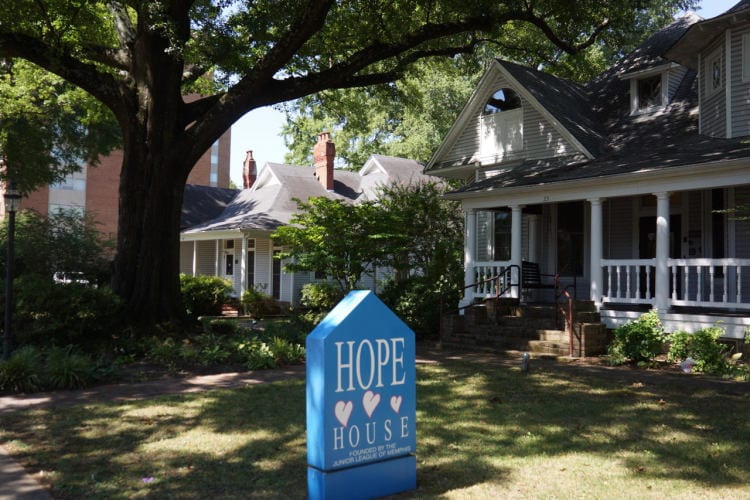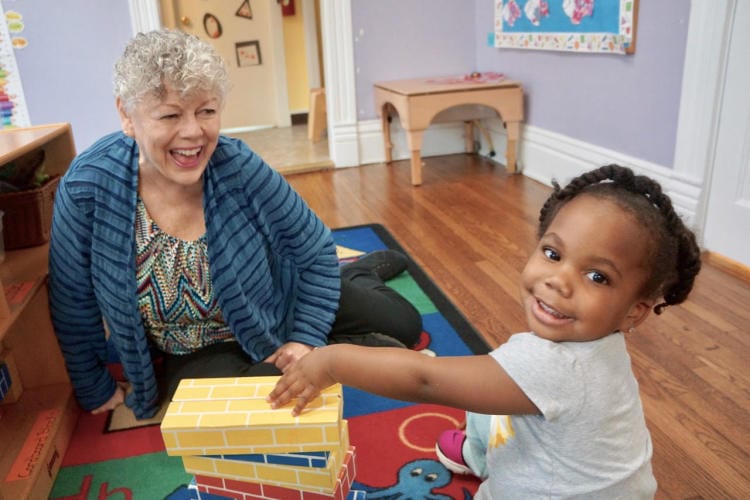By Cole Bradley, High Ground News
According to the Center for Disease Control and Prevention, there are over 7,000 Memphians living with HIV and AIDS.
The Memphis MSA ranks No. 6 in the nation among all metro areas for the highest rate of new HIV cases. And Memphis leads the state as 40 percent of Tennesseans who live with HIV and AIDS reside in Shelby County. That figure continues to climb as Memphis has the highest rate in the state for new diagnoses of HIV and AIDS.
Memphis’ rates of infection are largely a result of the city’s highest-in-the-state poverty rate, the general poor health of the South, and a serious lack of comprehensive sex ed.
“It changes the whole dynamic of relationships, especially here in the South” said Latrina Moore, a healthcare worker and mother of three who was diagnosed six years ago while pregnant with her second child.
Despite ample evidence that HIV cannot be transmitted through casual contact, the misconceptions are so profound that many people lose families, healthcare, jobs, and housing and may even begin to stigmatize themselves.
“You do it subconsciously … ‘Oh, no, you don’t want to use this person’s restroom,’ or, ‘You don’t want to use someone’s utensils,’ because [when] they find out that you’re HIV positive, they’ll start shunning you or your kids or your family,” Moore said.
Luckily Moore has Hope House, a Memphis-based organization for people living with HIV and AIDS (PLWHA) that is working to erase stigma and reconnect people with the support they need.
A Multi-Pronged Solution for Multiple Concerns
The stigma of HIV doesn’t exist in a vacuum. A person living with HIV or AIDS might also be a person of color, gender or sexual minority, sex worker, undereducated, disabled, low-income, or all of the above. Each adds barriers that furtherseparate people from resources.
“That stigma leads to institutional discrimination in all areas. That is a hindrance,” said Dawn ‘Bree’ Cassadine, a client and volunteer at Hope House.
Hope House is located in two large, colorful Victorian homes at 23 Idewild Street in Midtown. One serves as a childcare facility, the other as administration and a space for adult clients to meet.

Around 450 low-income clients living with HIV or AIDS have access to focused services that range from housing and childcare assistance to mental health care, patient advocacy, support groups, a food bank, and social events.
“[It’s] a holistic approach to help our clients to be empowered, to heal, and to thrive,” said Angie Galyean, victim services coordinator with Hope House.
Hope House began in 1995 by providing short-term childcare so mothers living with HIV or AIDS could go to the doctor but diversified its services after realizing that a person needed to feel secure in all areas of life — food, housing, life skills, and more — to truly focus on health.
There are other organizations in town that offer some of the same services — Department of Housing and Urban Development work with housing, Shelby County Health Department provides HIV testing, CHOICES has medical services — but narrower offerings means that client has to spend more time and funds to get between locations and face fear of new discriminations.
“Our clients would much rather come here for services. If I make a referral for somewhere else, they may not be as likely to follow up because they don’t want to disclose,” said Melissa Farrar, director of social services.
Helping Kids Helps Mom’s Health
Moore is a client of Hope House and advocate for HIV and AIDS awareness, appearing on WREG for World AIDS Day in December 2016.
She first connected with Hope House in 2012 after testing positive on a routine screening during her second pregnancy. Hope House offered Moore daycare services, but she was reticent to believe it was expense free. On the first day, she showed up prepared.

“I packed a whole diaper bag….they turned me right around and said, ‘Latrina, we have everything,’” she said.
New diapers, formula, pacifiers, bottles and more were waiting.
“That was a load off of me … It’s difficult being newly diagnosed; you’re trying to deal with a diagnosis and take care of yourself and your health and you have another life to take care of … The first thing they did was alleviate that stress,” said Moore.
Moore’s son is now in kindergarten, and her 3-year-old daughter is enrolled in Hope House’s pre-K program.
The pre-K is in partnership with Shelby County Schools and teaches 20 students from both client families and the general public. It boasts an accreditation by the National Association for the Education of Young Children and highest marks on its state evaluations.
Moore’s thrilled with the education her kids received but even more grateful for the judgment-free environment.
“It’s the way they held my kids. They don’t hold them like a germ,” she said.
Two years ago Moore developed a stomach condition and could no longer eat meat or dairy. The new diet caused problems with her HIV medications and her viral load climbed. Staff helped Moore start a fitness group and brought in a dietitian for lessons tailored to PLWHA. Moore’s viral load returned to undetectable levels.
“You alleviate the stress and give the body what it needs — the support, the love, the acceptance, [good food] and adequate sleep — and it can do a lot,” she said.
Moore’s also taken parenting and self-sufficiency classes with lessons on financial literacy.
“Not only was I able to go back to school, I was able to get a car and now I’m working in my field again but in a better position….I got a chance to get my credit together, it helped with budgeting….The parenting classes, they helped too,” she said.
When You’re Here, You’re Family
Cassadine has been a Hope House client and volunteer since 2010. Like Moore, she attributes her return to college to Hope House’s support. They also helped her move from a group home to independent living and helped her facilitate her gender transition.
“I’m really dedicated to being here because I feel like this is the only place in my community that has a solid foundation of support,” she said.
Related: “Orange Mound Club serves the black LGBTQ community”

Cassadine said other agencies can feel cold or bureaucratic but Hope House feels like a home and its staff like family. She also considers members of the transgender support group family and said it opens up safe dialogue around issues of proper HIV treatment in conjunction with safe social and medical transitions.
Kayla Gore is the transgender services coordinator for local LGBT+ community center, OUTMemphis. She also helps people access medicines to prevent infection, known as PreP. Gore has worked with Hope House and said these groups are especially important for trans people who face pervasive discrimination from medical professionals.
“We’re more likely to rely on our [trans] sisters and brothers to help us through any kind of issue,” said Gore.
Legalizing HIV
Not just the medical system, the legal system also poses challenges for trans people and PLWHA.
Gore said in Tennessee, someone can be charged with Criminal Exposure to HIV if they test positive for HIV then bite or spit on someone, despite the fact that HIV is not transmitted through saliva.
These laws discourage testing (if you don’t know your status, you can’t be charged) and discourage PLWHA from coming forward when they’ve been the victims of a crime. Trans women and people of color have also expressed fears about interacting with police.
“It is difficult for a trans woman to be in a domestic violence dispute [and] report it. Sometimes they aren’t fair to her, they don’t put that much into helping her because of who she is,” said Cassandine.
In early 2017, Hope House earned a grant through the Victims of Crime Act to help clients in group and individual sessions process trauma related to past victimizations. It also teaches skills for crime prevention and offers direct supports if clients are victims of a new crime. Staff can help file police reports, act as advocates in court, and more. Domestic violence is a core focus.
Galyean said that without comprehensive sex ed, many clients can’t recognize an unhealthy relationship.
“I’ve had violent relationships in the past….The class helped me see some of the patterns, how to find safety [and] keep myself safe,” said Cassadine.
The Future of the Fight
Cassadine sees her personal growth complement Hope House’s expansion over the last few years — five new staffers, new interns, new programs — but she said there are still thousands of PLWHA in the Memphis area they haven’t reached yet.
Gore said wrap-around services like those at Hope House are critical for supporting those currently affected, but education for all Memphians is the only way to decriminalize HIV and AIDS, reduce stigma, and prevent new infections.
Using proper precautions like condoms and PreP, knowing your status, getting treatment if you are positive, and educating yourself and others if you’re negative are all part of reducing the need for places like Hope House.
“Prevention is key, and HIV isn’t biased. It isn’t racist, it doesn’t see class … It’s blind,” said Gore.
But we don’t have to be.
OUTMemphis offers free and painless HIV testing every Monday and Wednesday from 6 to 9 p.m.



